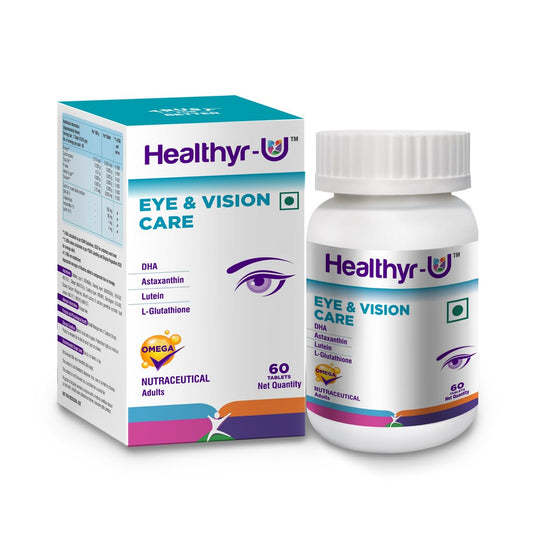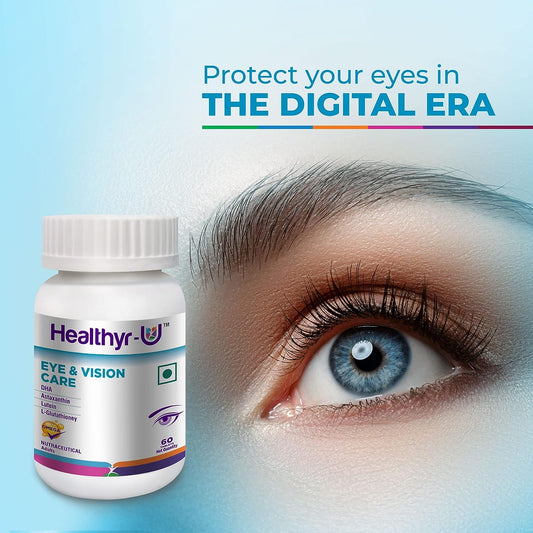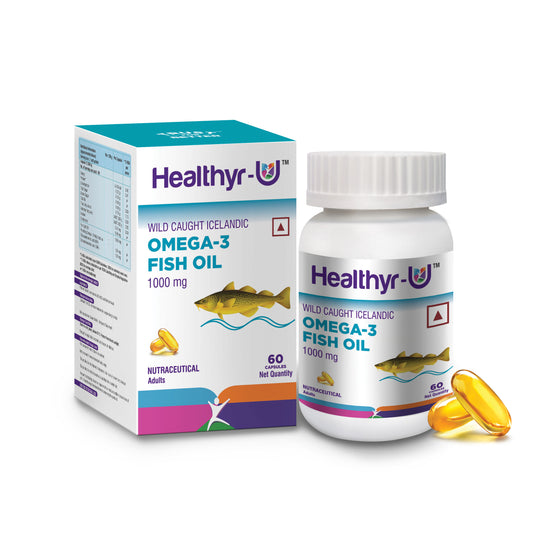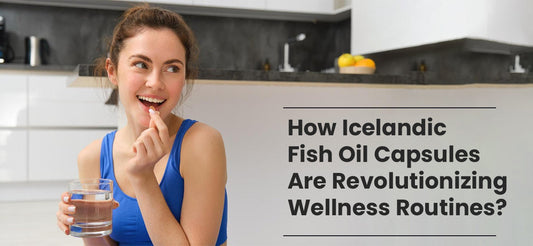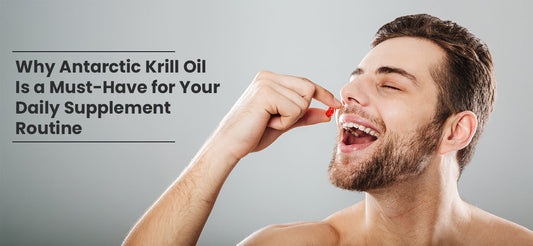Ageing brings wisdom, experience, and unfortunately, a few health concerns including changes in vision. Blurry text, difficulty adjusting to light, and increased dryness are just some of the common eye problems with age that people experience. However, senior eye care is often overlooked until vision loss becomes noticeable.
The good news?
Aging and your eyes don’t have to be a losing battle. With the right healthy eye care practices, you can maintain healthy eyes and reduce the risk of age-related vision loss.
Let’s break down how to protect your eye health as you get older and keep your vision sharp for years to come.
How Does Ageing Affect Your Eyes?
Like the rest of the body, our eyes change over time. Some of these changes are natural, while others may indicate underlying conditions that need attention. Here is what happens to aging eyes:
• Reduced Tear Production: Tear glands become less efficient, leading to dryness and irritation(1).
• Weakened Eye Muscles: The muscles controlling the lens weaken, making it harder to focus on close objects (presbyopia) (2,5).
• Thinning Retinal Tissue: The retina, responsible for detecting light, thins with age, affecting night vision and contrast sensitivity(3).
• Increased Risk of Eye Diseases: Eye problems with age, such as cataracts, glaucoma, and macular degeneration, become more common(4).
Understanding these changes can help you take proactive steps to protect your eye health and maintain clear vision.
Common Eye Problems with Age
1. Presbyopia (Difficulty Reading Small Print)
Most people start noticing difficulty reading fine print in their 40s or 50s. This happens because the eye’s lens loses flexibility, making it harder to focus on nearby objects.
Solution: Use reading glasses, increase text size on screens, and ensure proper lighting when reading.
2. Dry Eyes
Ageing affects tear production, leading to irritation, redness, and a gritty sensation in the eyes.
Solution: Use lubricating eye drops, stay hydrated, and limit screen time to prevent excessive strain.
3. Cataracts (Cloudy Vision)
Cataracts occur when the eye’s natural lens becomes cloudy, causing blurred vision and light sensitivity. This is one of the most common eye problems with age.
Solution: Wearing UV-protective sunglasses can slow cataract development. Surgery is an option if vision becomes severely impaired.
4. Glaucoma (Increased Eye Pressure Leading to Vision Loss)
Glaucoma damages the optic nerve due to high eye pressure(6). It often develops without noticeable symptoms until vision loss occurs.
Solution: Regular eye exams are crucial for early detection and treatment with eye drops or surgery.
5. Age-Related Macular Degeneration (Blurred Central Vision)
Macular degeneration affects the central part of the retina, making it difficult to see fine details. It is a leading cause of age-related vision loss.
Solution: Eating a diet rich in antioxidants and omega-3 fatty acids can support retinal health.
By recognizing these conditions early, you can adopt the right healthy eye care habits to slow progression and maintain healthy eyes.
Tips to Keep Your Eyes Healthy as You Age
1. Schedule Regular Eye Exams
Routine eye checkups are the foundation of senior eye care. Many eye diseases develop silently, so catching them early is key.
• Get a comprehensive eye exam every 1-2 years after age 40.
• If you have diabetes or a family history of eye disease, get tested annually.
2. Eat a Vision-Boosting Diet
What you eat plays a huge role in healthy eye care. A nutrient-rich diet helps slow age-related vision loss and keeps ageing eyes strong.
Best foods for eye health:
• Leafy Greens (Spinach, Mustard Leaves) - High in lutein and zeaxanthin, which protect against macular degeneration(7).
• Fatty Fish (Mackerel, Tuna) - Rich in omega-3 fatty acids that prevent dry eyes.
• Carrots & Bell Peppers - Loaded with vitamin A, essential for night vision.
• Eggs - Contain antioxidants that help filter harmful blue light.
• Nuts & Seeds (Almonds, Sunflower Seeds) - Provide vitamin E, which slows retinal damage.
3. Wear Sunglasses to Protect Your Eye Health
UV rays from the sun can speed up cataract formation and cause retinal damage. Protecting your eyes from excessive light exposure is a must.
• Choose sunglasses that block 100% of UVA & UVB rays.
• If you wear prescription glasses, consider photochromic lenses that adjust to light exposure.
4. Reduce Screen Time
Long hours staring at screens contribute to eye strain, dry eyes, and headaches. Adjust screen brightness, use anti-glare screens, and ensure proper lighting when using digital devices(8).
5. Use Artificial Tears if Needed
If your eyes frequently feel dry, use preservative-free artificial tears for relief.
6. Maintain a Healthy Blood Pressure and Sugar Level
High blood pressure(9) and diabetes(10) can damage blood vessels in the eyes, leading to vision problems.
• Control blood sugar levels to prevent diabetic retinopathy.
• Keep blood pressure in check to reduce the risk of glaucoma and retinal damage.
7. Exercise Regularly for Better Eye Circulation
Physical activity improves blood circulation, ensuring that the eyes get enough oxygen and nutrients(11).
• Low-impact exercises like walking, swimming, or yoga are great for eye health.
• Avoid excessive smoking and alcohol consumption, as they accelerate ageing and your eyes.
8. Use Proper Lighting When Reading or Working
Poor lighting can strain your eyes, making age-related vision loss worse.
• Use warm, bright light when reading.
• Adjust contrast and font size on screens to reduce eye fatigue.
9. Get Enough Sleep to Keep Eyes Healthy
Good sleep is essential for healthy eyes(12). It allows your eyes to rest, repair, and stay moisturized.
• Aim for 7-9 hours of quality sleep per night.
• Reduce screen exposure before bedtime to prevent sleep disruptions.
10. Consider Eye Supplements for Extra Protection
Some supplements are specially formulated to protect your eye health and slow down ageing eyes.
Key eye-friendly nutrients:
• Lutein & Zeaxanthin - Protects the retina from blue light damage.
• Omega-3 Fatty Acids - Reduces dry eye symptoms and inflammation.
• Vitamin C & E - May prevent cataracts and macular degeneration.
• Zinc - Supports night vision and overall eye function.
Before taking supplements, consult your doctor to find the best options for your senior eye care needs.
To Sum Up
Ageing is inevitable, but age-related vision loss doesn’t have to be. By making small yet impactful lifestyle changes, you can keep your eyes healthy and enjoy clear vision for years to come. Prioritize senior eye care, eat a vision-friendly diet, reduce screen time, and get regular check-ups to stay ahead of eye problems with age.
Your eyes work hard for you every day, give them the care they deserve! Start today with these simple yet powerful habits, and ensure a lifetime of healthy eyes and sharp vision.
References
- Sharma, A., & Hindman, H. B. (2014). Aging: a predisposition to dry eyes. Journal of Ophthalmology, 2014, 1–8. https://doi.org/10.1155/2014/781683
- InformedHealth.org [Internet]. Cologne, Germany: Institute for Quality and Efficiency in Health Care (IQWiG); 2006-. Age-related farsightedness (presbyopia): Learn More – How can age-related farsightedness be corrected? [Updated 2023 Oct 4]. Available from: https://www.ncbi.nlm.nih.gov/books/NBK423827/
- Alamouti, B. (2003). Retinal thickness decreases with age: an OCT study. British Journal of Ophthalmology, 87(7), 899–901. https://doi.org/10.1136/bjo.87.7.899
- Cvekl, A., & Vijg, J. (2024). Aging of the eye: Lessons from cataracts and age-related macular degeneration. Ageing Research Reviews, 99, 102407. https://doi.org/10.1016/j.arr.2024.102407
- Markoulli, M., Fricke, T. R., Arvind, A., Frick, K. D., Hart, K. M., Joshi, M. R., Kandel, H., Macedo, A. F., Makrynioti, D., Retallic, N., Garcia-Porta, N., Shrestha, G., & Wolffsohn, J. S. (2024). BCLA CLEAR Presbyopia: Epidemiology and impact. Contact Lens and Anterior Eye, 47(4), 102157. https://doi.org/10.1016/j.clae.2024.102157
- Zhang, Y., Huang, S., Xie, B., & Zhong, Y. (2024). Aging, cellular senescence, and glaucoma. Aging and Disease, 15(2), 546. https://doi.org/10.14336/ad.2023.0630-1
- Mrowicka, M., Mrowicki, J., Kucharska, E., & Majsterek, I. (2022). Lutein and zeaxanthin and their roles in Age-Related Macular Degeneration—Neurodegenerative disease. Nutrients, 14(4), 827. https://doi.org/10.3390/nu14040827
- Agarwal, R., Tripathi, A., Khan, I. A., & Agarwal, M. (2022). Effect of increased screen time on eyes during COVID-19 pandemic. Journal of Family Medicine and Primary Care, 11(7), 3642–3647. https://doi.org/10.4103/jfmpc.jfmpc_2219_21
- Bhargava, M., Ikram, M. K., & Wong, T. Y. (2011). How does hypertension affect your eyes? Journal of Human Hypertension, 26(2), 71–83. https://doi.org/10.1038/jhh.2011.37
- Shukla UV, Tripathy K. Diabetic Retinopathy. [Updated 2023 Aug 25]. In: StatPearls [Internet]. Treasure Island (FL): StatPearls Publishing; 2025 Jan-. Available from: https://www.ncbi.nlm.nih.gov/books/NBK560805/
- Wylęgała, A. (2016). The Effects of Physical Exercises on Ocular Physiology: A review. Journal of Glaucoma, 25(10), e843–e849. https://doi.org/10.1097/ijg.0000000000000454
- McNab, A. A. (2005). The eye and sleep. Clinical and Experimental Ophthalmology, 33(2), 117–125. https://doi.org/10.1111/j.1442-9071.2005.00969.x



